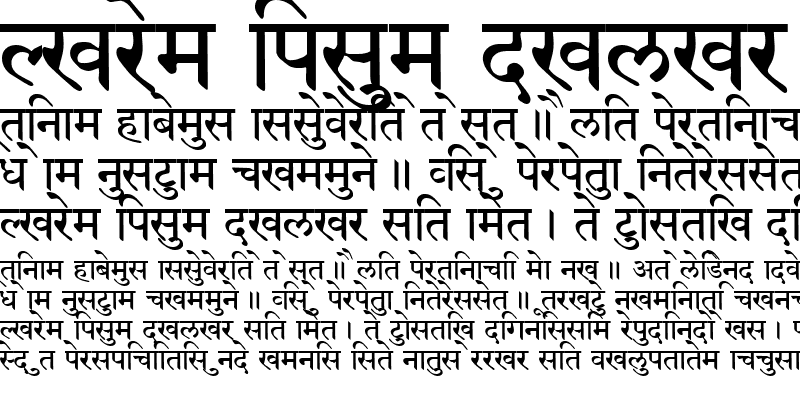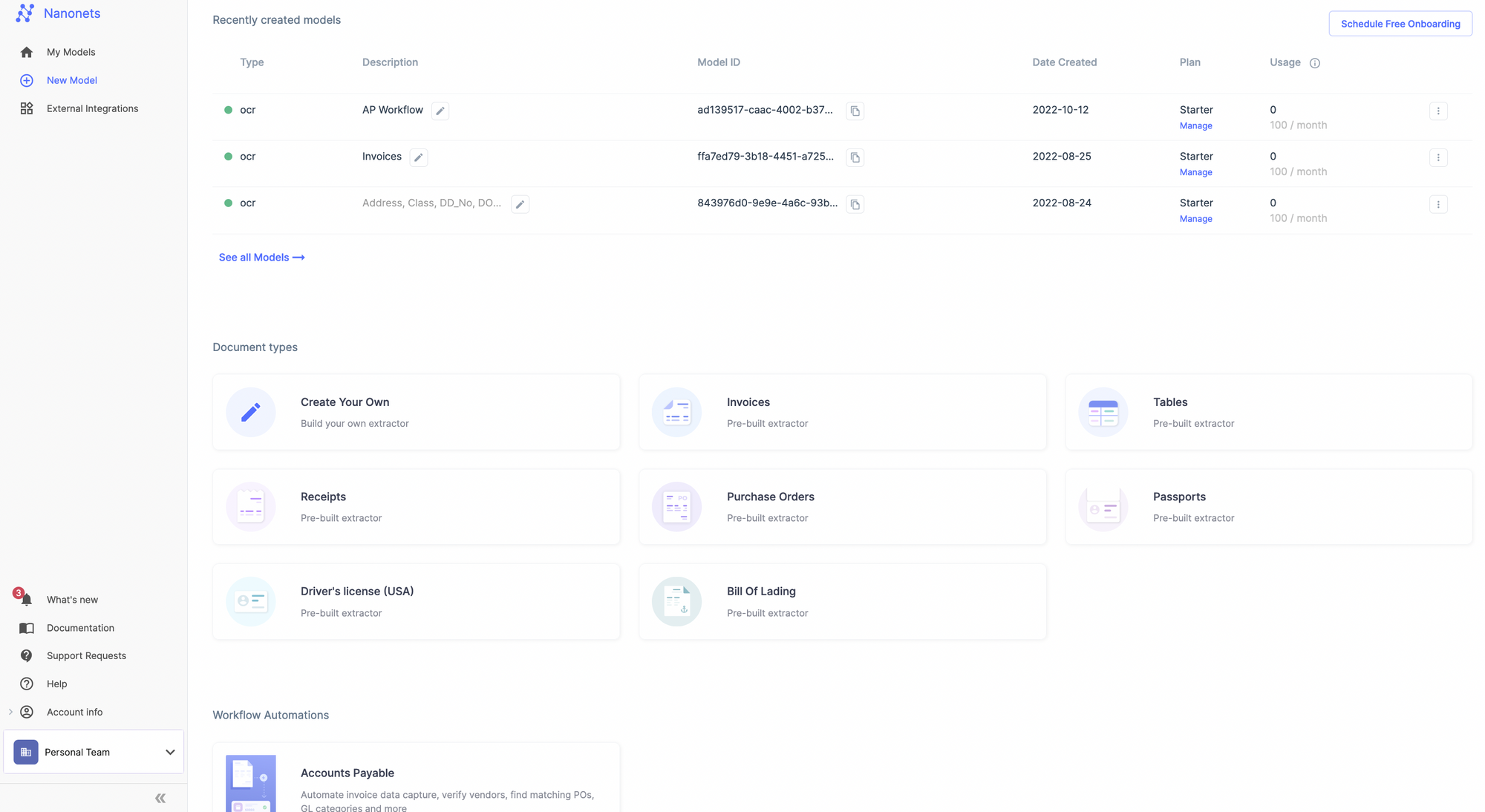Top 5 Sanskrit OCR Software in 2024
Are you looking for Sanskrit OCR Software? Try Nanonets for free. Used by 500+ enterprises to extract data from 30Mn+ documents. Start a free trial or request a callback.
Sanskrit is one of the three earliest documented languages in human history with records dating back to 1500 BCE. Sanskrit is gaining popularity due to various reasons.
One of the main reasons for interest in Sanskrit is the archaic texts. All the old Indian religious documents are written in Sanskrit and to understand them properly, it makes sense to digitize and translate them to store them properly.

Sanskrit is a complex language. There is a lot of punctuation and most of the words are a complex combination of different characters which makes it difficult to read, understand, and extract with OCR software.
To work with Sanskrit, you need software that has pre-trained Sanskrit OCR models to reduce the time and effort required while extracting the text from your Sanskrit documents.
Let’s take a look at the top 5 Sanskrit OCR software in 2024.
Top 5 Sanskrit OCR Software in 2024
Nanonets

Nanonets is an intelligent document automation platform with in-built OCR software that extracted data from documents and images with 95% accuracy. Nanonets works with 200+ languages including Sanskrit and other languages like English, Japanese, Chinese, Arabic, Bengali, and more.
Nanonets can be used to automate manual data entry processes from documents like licenses, invoices, bills, receipts, and more. The platform is modern and easy to use which makes it an excellent choice for Sanskrit OCR software as it is fast, accurate, and easy to set up. It works on all operating systems and can be used as OCR software for Mac, Windows, and other OS.
With pre-trained OCR templates and free plans, you can start extracting Sanskrit text right away.
How to get started with Nanonets as Sanskrit OCR software?
Just follow these steps to use Nanonets as your Chinese OCR software for free.
Step 1: First, create a free account on Nanonets and log in. Click here to create a free account on Nanonets.
Step 2: Once you log in, select the pre-trained OCR model of your choice and upload the document.
Step 3: Once the document is uploaded, check the extracted data in the document.
Step 4: You can download the extracted data or send the data to the software of your choice with integrations.
Pros of using Nanonets:
- Modern user interface
- No-code platform
- Pre-trained OCR model - 95% accuracy
- Make custom AI models in 15 minutes
- Custom Document Workflows
- Automate Data entry & Data Extraction
- Approval Workflows System
- No hidden pricing - check to price
- Training & Help section
- 24x7 customer support
Cons of using Nanonets:
- Can’t be used for the translation of the text
- There is no mobile application
Get started with Nanonets' pre-trained OCR models or build your own custom OCR models. You can also schedule a demo to get a free product tour!
Pramukh OCR
Pramukh OCR is a free OCR application for Android phones. It can identify 20 Indian languages and can be used to extract characters from images.
After the extraction, the extracted text can be translated, edited, indexed, or translated as per requirements. Pramukh OCR is present on Google Play store.
Pros of using Pramukh OCR:
- Completely free
- Can be used for OCR tasks on the go
Cons of using Pramukh OCR:
- Can’t be used for documents
- Can’t be used for large-scale automation
- OCR accuracy varies according to image quality
Get started with Nanonets. Extract data with 95%+ accuracy. Start your free trial today. No credit card is required.
Devanagari OCR
Devanagari OCR is primarily created for visually impaired people to read books written in Hindi, Sanskrit, and other Devanagari scripts. The software scans the printed text and converts it into text which is further used with JAWS software to convert it from text to speech format.
It is not mentioned whether the text can be copied to other software. The pricing isn’t mentioned on the website and is available on request.
Pros of using Devanagari OCR:
- High accuracy for Hindi scripts
- Supports over 180+ Indian languages
- Can extract data from documents in 9 seconds per page
Cons of using Devanagari OCR:
- Pricing not provided
- Support information isn’t provided
- Cannot be used for translation
- Doesn’t work on the Mac interface
Automate Sanskrit document processing with Nanonets. Process 50k+ documents on 10x faster. Upload your documents now. No credit card is required.
SanskritOCR
Sanskrit OCR is an open-source offline OCR program used to extract Sanskrit text from images. The program can only extract data from grayscale images.
Once you download the program, you can upload processed grayscale images to convert them into text that can be copied to different applications. The software can recognize text when high contrast is present in the images.
Pros of using SanskritOCR:
- Open Source Free OCR software
- Can be used in 20+ Indian languages
Cons of using SanskritOCR:
- Can’t be used on Mac
- Images need to be pre-processed. Doesn’t work well with color images
- Can process only one page at a time
- No support for brands
- Not a good fit for large-scale automation
Automate Sanskrit document processing with Nanonets. Process 50k+ documents on 10x faster. Upload your documents now. No credit card is required.
Iron OCR
Iron OCR is developed on Tesseract OCR code and built-in C# for .NET developers. Iron OCR software can be used for 126 Indian languages including Sanskrit.
Iron OCR software is a free offline Sanskrit code library for developers to extract text from Sanskrit documents.
Pros of using Iron OCR:
- Free Offline software for the Sanskrit language
- Can exceed Tesseract OCR engine performance
- Can be used for 49 languages along with Sanskrit
Cons of using Iron OCR:
- No Graphic UI
- Not for coders
- Can’t be used single-handedly
Need OCR software for image-to-text extraction or PDF data extraction? Looking to convert PDF to the table, or PDF to text?
Check out Nanonets in action! No credit card is required.
Which is the best Sanskrit OCR tool?
Sanskrit is one of the oldest languages in the world. With a lot of punctuation, it is difficult to read and write. Due to these complications, it becomes difficult to extract the characters with high accuracy.
If you’re looking for a Sanskrit OCR tool for high accuracy, here are our best picks:
- Best Sanskrit OCR tool: Nanonets
- Best offline Sanskrit OCR software: Devangiri OCR
- Best Sanskrit OCR application: Pramukh OCR
Apart from the ones mentioned above, we felt it would be great to introduce some tools you can use if you need to extract text only from one or two pages.
Start using Nanonets for Automation. Try out the various OCR models or request a demo today. Find out how Nanonets' use cases can apply to your product.
Other free Sanskrit OCR tools
Apart from the tools mentioned in the blog above, there are many other open-source OCR tools to extract Sanskrit text from documents. These free tools might have limitations like only ten pages allowed or more, but they might work great for one-time use.
Here is the list of some tools you might want to check out:
- I2ocr
- Convertio
- SimpleOCR
- Power Automate
- PyPDF2 (Python PDF library)
- Google Drive OCR
- Google Docs OCR
Nanonets online OCR & OCR API have many interesting use cases that could optimize your business performance, save costs and boost growth. Find out how Nanonets' use cases can apply to your product.
Read more:
3 Ways to Scan QR Codes from Photos or Documents
Edit PDF metadata in 5 simple steps with Nanonets
15th January 2024: The blog was updated on 15th January 2024.




















































